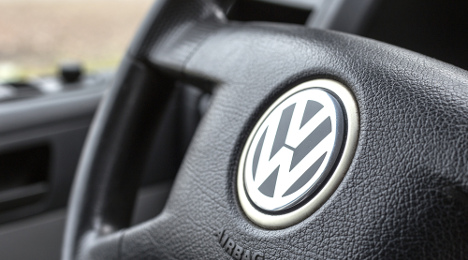VW settlement takes ‘massive step forward’

By subscribing, you agree to receive communications from Auto Remarketing and our partners in accordance with our Privacy Policy. We may share your information with select partners and sponsors who may contact you about their products and services. You may unsubscribe at any time.
CARY, N.C. –
In what one industry observer called “a massive step forward” for the OEM and what’s commonly known as “Dieselgate,” Volkswagen Group of America announced on Tuesday that Judge Charles Breyer of the U.S. District Court for the Northern District of California has granted final approval to the $10 billion settlement order agreement between Volkswagen and private plaintiffs represented by a court-appointed Plaintiffs’ Steering Committee (PSC) to resolve civil claims regarding eligible Volkswagen and Audi 2.0L TDI vehicles in the United States.
Concurrently, Breyer also approved a consent decree between Volkswagen and the U.S. Department of Justice on behalf of the Environmental Protection Agency (EPA) and the State of California by and through the California Air Resources Board (CARB) and the California Attorney General; and a Consent Order between Volkswagen and the U.S. Federal Trade Commission.
All three agreements were previously announced back in July.
“Final approval of the 2.0L TDI settlement is an important milestone in our journey to making things right in the United States, and we appreciate the efforts of all parties involved in this process,” said Hinrich Woebcken, president and chief executive officer of Volkswagen Group of America.
“Volkswagen is committed to ensuring that the program is now carried out as seamlessly as possible for our affected customers and has devoted significant resources and personnel to making their experience a positive one,” Woebcken continued.
Woebcken added that Volkswagen remains focused on resolving other outstanding issues in the United States and continues to work towards an agreed resolution for customers with affected 3.0L TDI V6 diesel engines.
Subscribe to Auto Remarketing to stay informed and stay ahead.
By subscribing, you agree to receive communications from Auto Remarketing and our partners in accordance with our Privacy Policy. We may share your information with select partners and sponsors who may contact you about their products and services. You may unsubscribe at any time.
Industry reaction
Under the settlement, eligible vehicle owners have two choices:
1. They can sell back their vehicle to Volkswagen or terminate their lease without an early termination penalty.
2. Keep their vehicle and receive a free emissions modification, if approved by the U.S. Environmental Protection Agency (EPA) and the California Air Resources Board (CARB).
“This is a massive step forward in Volkswagen’s efforts to put its diesel emissions issue to bed,” Kelley Blue Book senior analyst Karl Brauer said. “The combination of customer repair/buyback options, plus the additional monetary compensation these owners will receive, should cover any losses TDI owners would have suffered from the cars’ drop in market value.
“Additional fines related to the advancement of clean energy, to counteract the air quality impact of these engines, further illustrates VW’s desire to address health and environmental concerns,” Brauer continued. “Resolution for its 3.0-liter diesel engines remains on VW’s ‘to do’ list, as do settlements with individual states and markets outside the United States, but the importance of getting past this threshold in the process can't be overstated.”
The vehicles associated with this settlement include:
2013-2015 VW Beetle
2010-2015 VW Golf
2009-2015 VW Jetta
2012-2015 VW Passat
2010-2013; 2015 Audi A3
“At long last, Volkswagen seems to be coming to the end of this unfortunate episode in its history in the United States,” Kelley Blue Book executive editorial director and executive market analyst Jack Nerad.
“The bad news for VW is the settlement will put the Volkswagen name back in the news in an unfavorable light,” Nerad continued. “The good news is that U.S. consumers seem to have short memories when it comes to automotive issues, so VW should be well on its way to moving forward without a millstone around its neck.”
More guidance from federal regulators
FTC officials cheered Tuesday’s developments.
In a new blog post titled “Road Cleared for VW to Compensate Consumers,” FTC chairwoman Edith Ramirez said that the landmark settlement will enable 500,000 consumers across the country to sell back their tainted diesel-powered cars to Volkswagen.
“The $10 billion order secured by the FTC will make consumers whole by remedying the losses they suffered due to VW’s deceptive ‘Clean Diesel’ ad campaign,” Ramirez wrote.
The FTC also issued a new consumer blog post titled “VW Buybacks and Lease Terminations to Begin,” which provides additional background information on the Volkswagen settlement order, along with detailed instructions for affected owners regarding how and where to file a claim, and the claim-processing timetable. It also tells consumers how and where they can pick up their buyback check, specifying that the money does not have to be used to buy a new Volkswagen.
Earlier this year, the FTC warned consumers about possible scams involving Volkswagen buybacks in a consumer blog post titled “VW Owners, Get the Facts.” At the same time, the FTC posted a business blog emphasizing that it would be unwise for anyone, including VW dealers, to make separate offers to the owners of affected vehicles.


